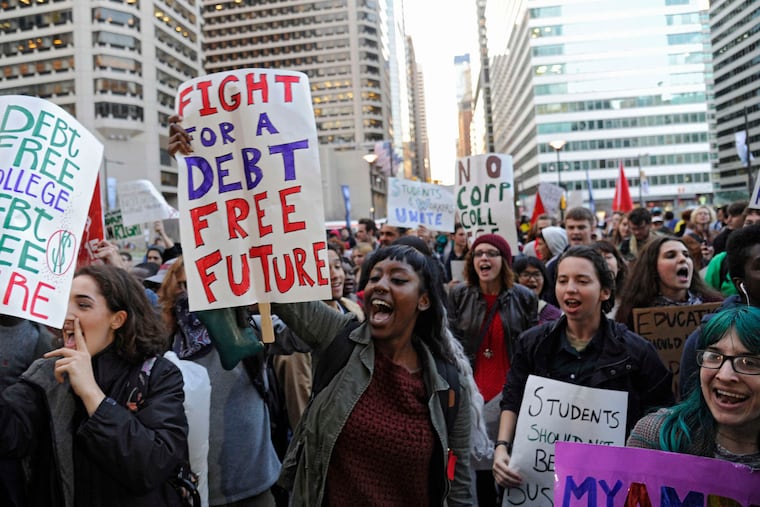Student debt crisis is a moral failing | Opinion
Recently, the Federal Reserve released a startling finding: total student loan debt in the United States just surpassed $1.5 trillion.

Recently, the Federal Reserve released a startling finding: total student loan debt in the United States just surpassed $1.5 trillion. That may be news to a lot of us, but it’s not news to Pennsylvania’s college graduates in particular, which lead the nation in having the most student debt per person.
I’ll say that again: our students—our college graduates, actually—have more student debt per person than any other state in the union. How did we let this happen?
While there are a lot of factors that contributed to get us where we are, they all boil down to an utter failure to protect the Pennsylvanians we’re sending to higher education.
Since the Great Recession, 95 percent of the new jobs created have gone to candidates with some higher education. And research has consistently shown that college graduates earn significantly more over the course of their lifetimes than those workers with only a high school diploma.
Not everyone needs to work in a field where a four-year degree is required, and there’s great value in jobs that have other requirements. But what we’re seeing is that to make ends meet in the modern economy, most workers need something after high school: the advanced skills that some form of higher education can provide.
So I’ll say this as clearly as I can: it’s a moral failing to let our kids start their lives with so much debt. Especially after they’ve had to take on that debt to get the skills needed just to get started in the economy we’ve created for them.
We have to do the work to get this right. And we have to have solutions that are bolder than anywhere else, since Pennsylvania is in the worst position in the country on student debt.
To be sure, there are no easy answers. Across the country, some institutions have established best practices for better retaining and graduating the students they already have. This is a powerful step in the right direction, and helps address one of the biggest problems: students who leave an institution with all of the debt of college, but without the degree to boost their earnings.
But we can’t for a moment be cavalier about how much higher education costs, on the assumption that students will make more money as graduates and can pay it all back. With student debt now reaching $1.5 trillion in the United States and with 40 percent of borrowers expected to default on their loans by 2023, that assumption just isn’t valid anymore.
Another step we need to take is to help families save as much as possible for the costs of higher education, to avoid this debt in the first place. Luckily, Pennsylvania just took a huge step by passing legislation creating the Keystone Scholars program. This program, administered by PA’s Treasury Department, creates $100 scholarship grants for every child born or adopted in our commonwealth to be used to jumpstart savings when a family opens a PA 529 account. And the program—which doesn’t use a single dollar of taxpayer money—just launched statewide on January 1st, 2019, so every family with a new baby on or after that date is eligible.
Finally, we have to have a tough conversation about how much we’re investing in higher education in Pennsylvania. When our graduates are leaving our schools with, on average, over $36,000 in student debt, we’re doing something wrong. These students are taking the tests and writing the papers, and they’re getting the degrees. They’re doing everything we’re asking them to do.
Let’s do a lot more to help them start their lives without a lifetime of debt.
Joseph Torsella is Pennsylvania’s State Treasurer.